18 Jun 2025
The Department of Physics at School of Mathematics and Physics at Xi’an Jiaotong-Liverpool University recently concluded the second AI physics video competition embedded in its PHY001 module. Combining artificial intelligence (AI) with fundamental physics concepts, the event provided students with a creative and academically grounded platform to express their understanding.
Initiated and coordinated by Dr Chen Xi, the competition was open to undergraduates enrolled in the PHY001 module. According to Dr Chen, the course centres on helping students simplify complex phenomena and articulate physical principles with precision. The video competition served as an extension of these goals through applied digital storytelling.
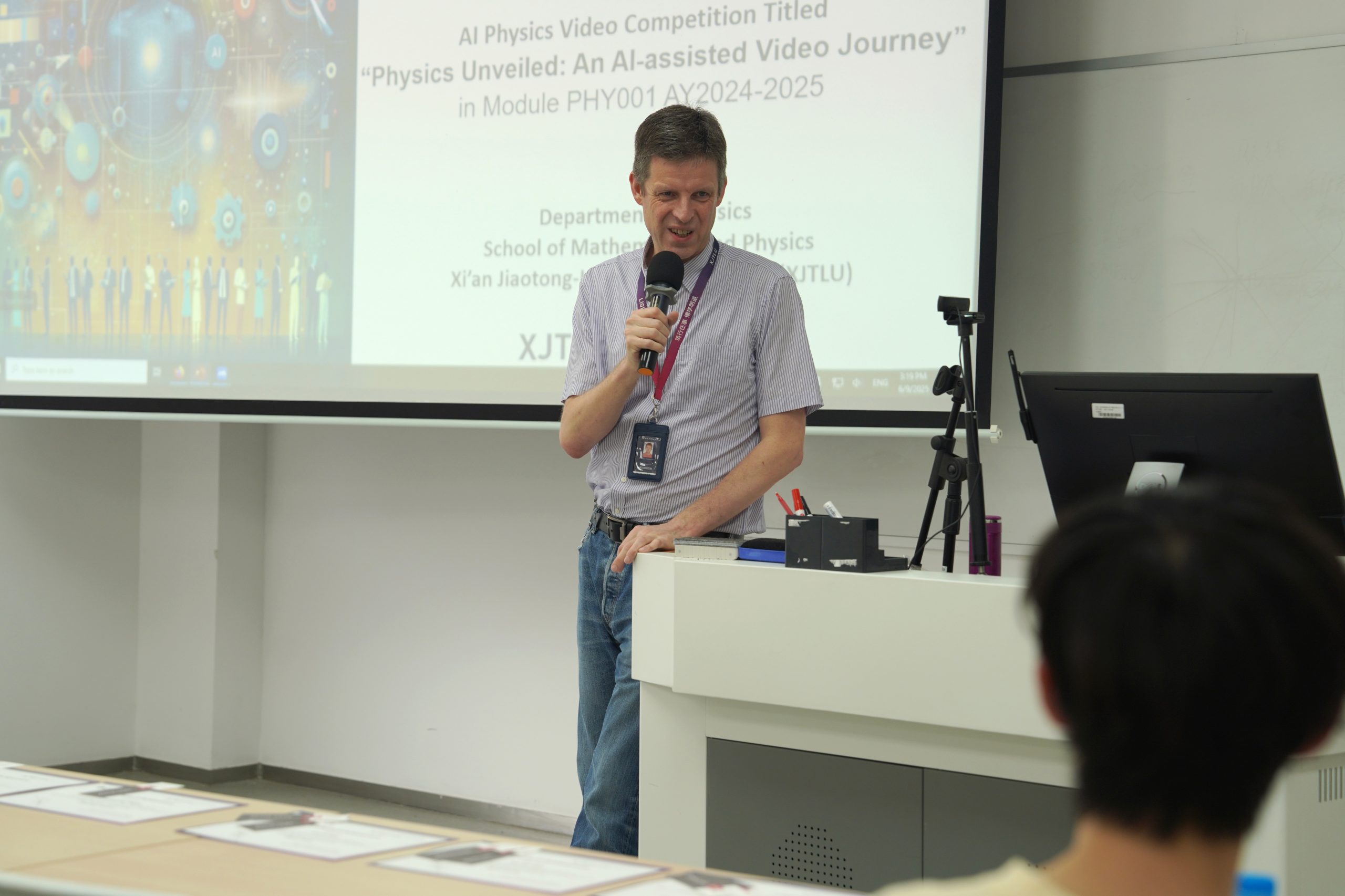
At the award ceremony, Professor M.B.N. (Thijs) Kouwenhoven, Head of the Department of Physics, delivered an address that sparked reflection. Referencing AI's ability to achieve near-perfect scores on physics assessments, he posed a key question: “When AI can already excel at solving problems, what makes human contributions truly unique?” He highlighted that students demonstrated human judgment and creativity through their iterative work with AI tools - qualities that remain irreplaceable. He encouraged students to embrace technological change, engage with research early, and continue developing as learners in an AI-integrated future.
The AI video project was an optional enrichment task within the module and received enthusiastic participation. Final results were determined through a combination of student voting and instructor scoring, leading to the selection of one First Prize, one Second Prize, and two Third Prize teams.
First Prize:
Team Fenglisu (Jinjin Huang )
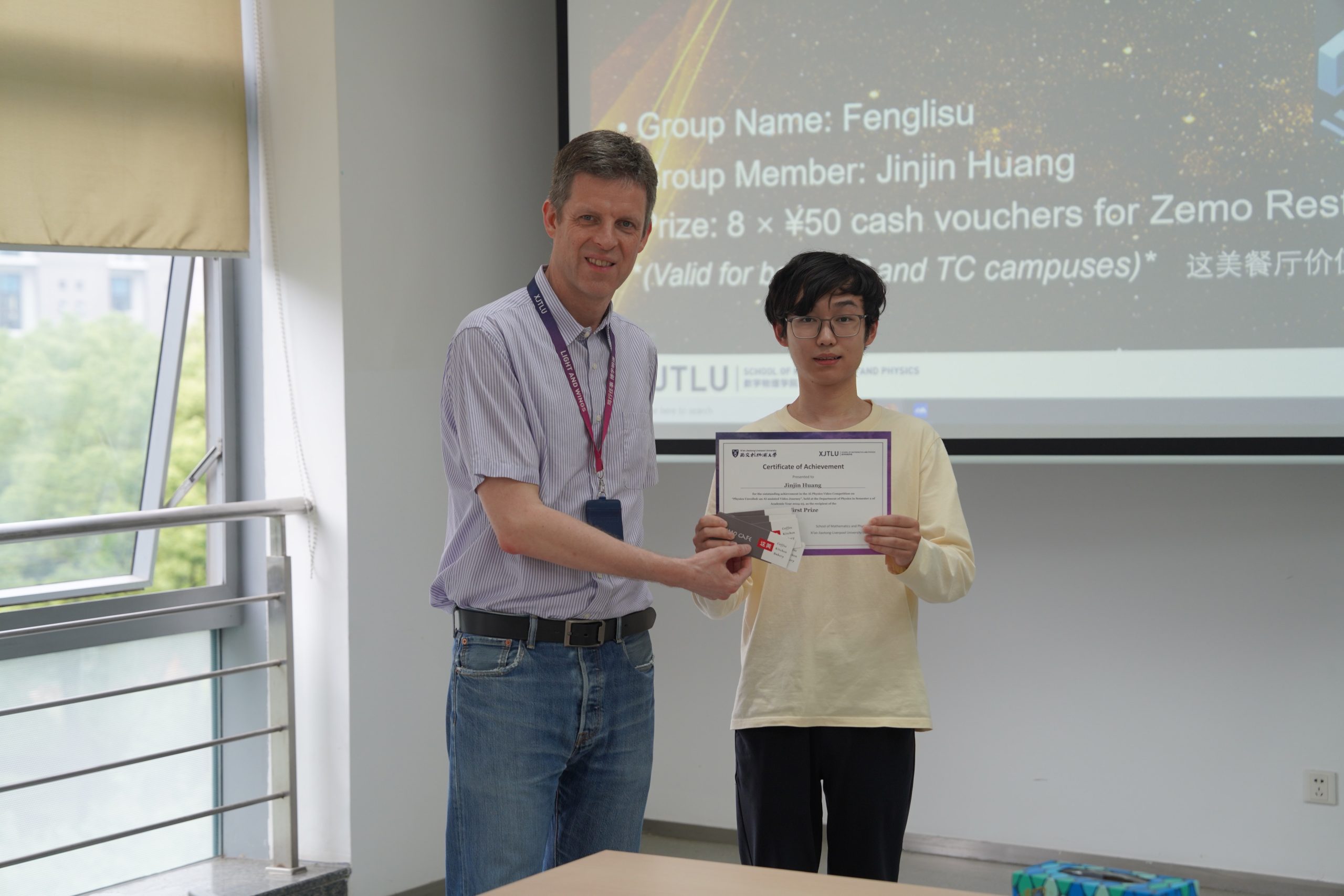
This submission was entirely AI-generated, from scriptwriting and voiceover to visual animation. Huang shared that the most challenging aspect was crafting effective prompts and fine-tuning model parameters: “The real skill lies in communicating with AI. Only through iterative optimisation can you achieve the intended effect.” He added that AI offered significant advantages in both creative efficiency and visual impact.
Second Prize:
Team Galactic Battleship (Haoshuo Zhang , Yilin He , Songyi Zhang)
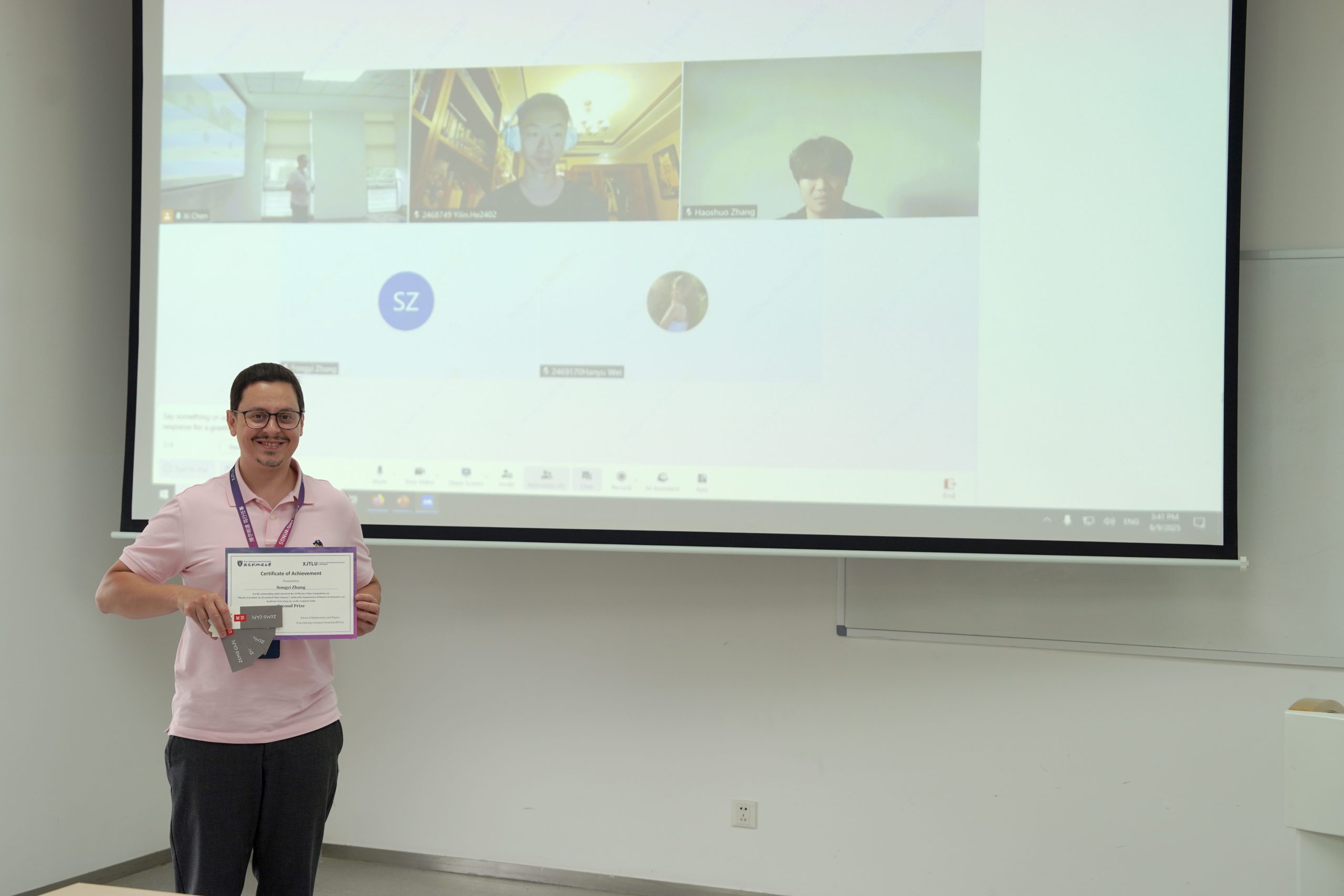
Their video focused on Faraday’s law of electromagnetic induction, using wireless charging technology as a contemporary application. The team noted that while AI significantly sped up the production process, human input remained crucial for refining and contextualising the content.
Third Prize:
- Team Work-Energy Principle Research (Hanyu Wei )
- Team QuAIntum LHX (Haoyuan Zheng , Pei En Lim, Xinyu Fan )
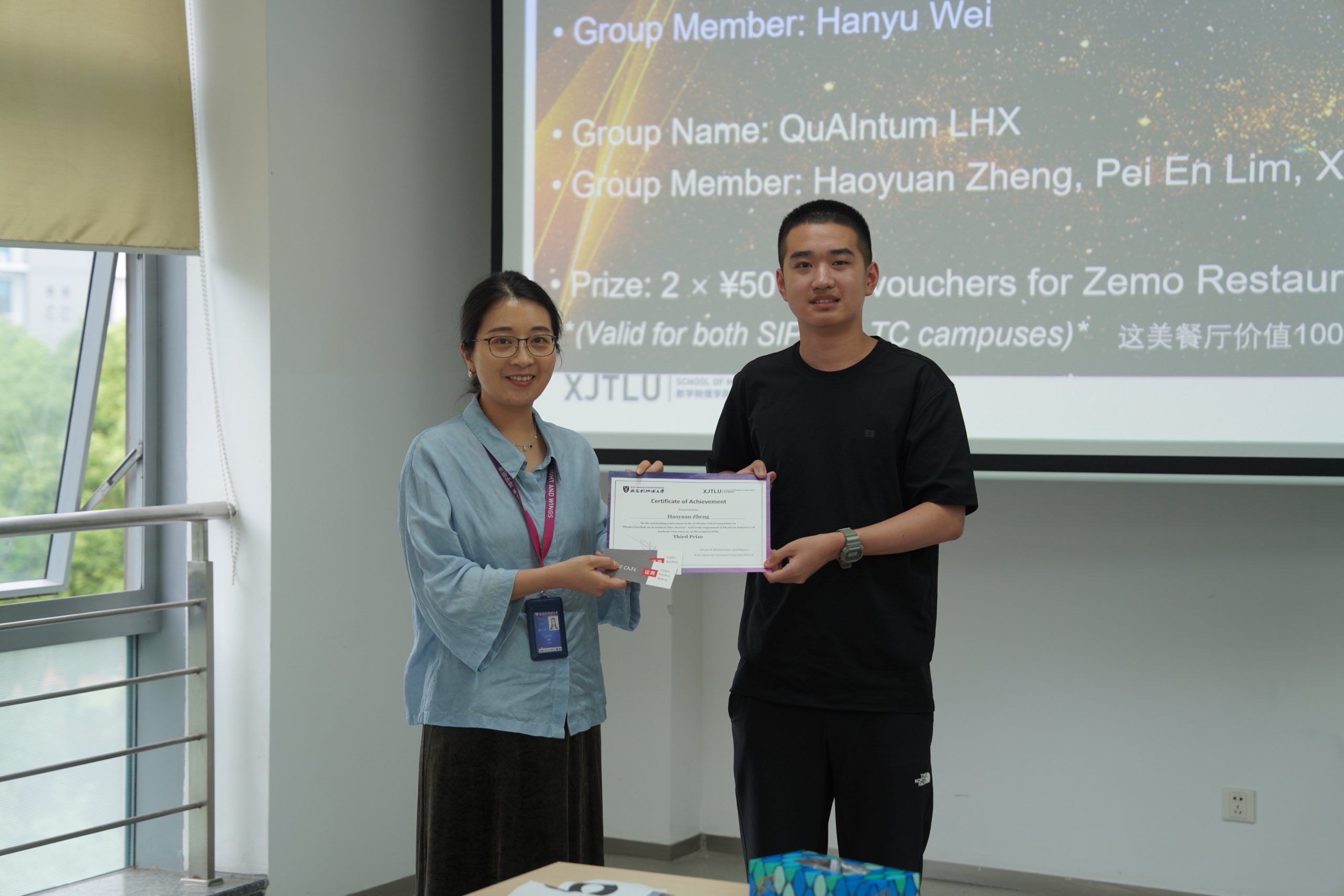
Zheng’s team also explored Faraday’s law, inspired by engaging popular science videos. They employed AI to generate scripts, visual descriptions, and subtitles, enhancing both the professionalism and accessibility of their final product.
Honourable Mentions:
- Team Pking (Xueyan Lin , Hongyu Chen)
- Team (Xuanming Zhang , Zihan Lin )
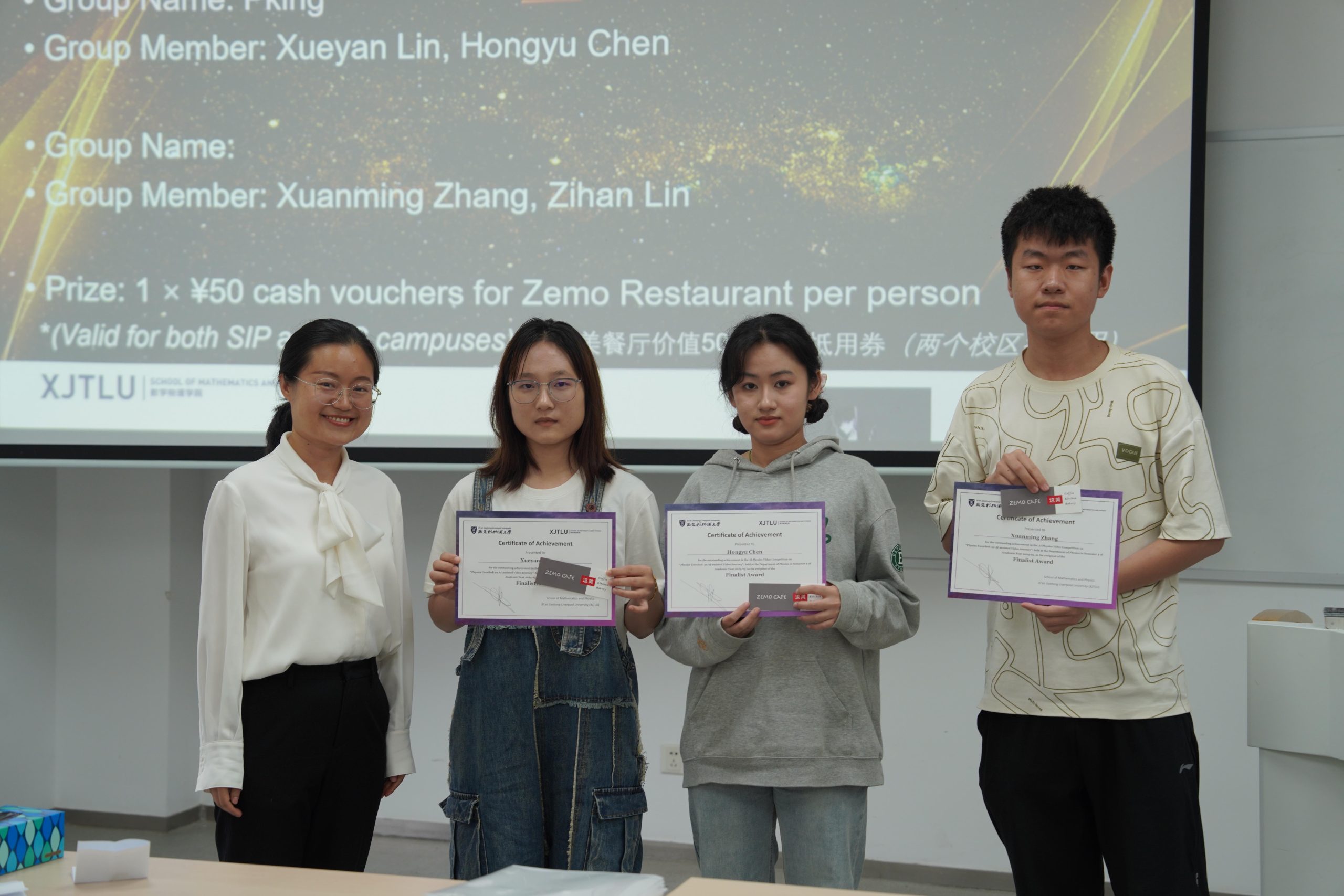
Zhang Xuanming shared his experience applying AI content creation skills developed through managing a popular science account: “The key is understanding your tools. Being able to visualise abstract physical principles is invaluable and deeply helpful for future learning.”
Beyond boosting students’ understanding of physics, the competition cultivated digital literacy and sparked creative thinking. As AI continues to shape both education and everyday life, the Department of Physics remains committed to exploring diverse teaching approaches through curriculum innovation and hands-on projects, supporting students to become creative, interdisciplinary thinkers ready for the future.
By Qinru Liu
18 Jun 2025








